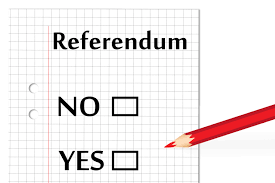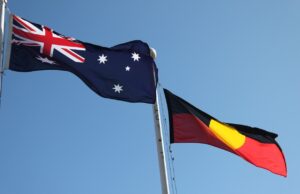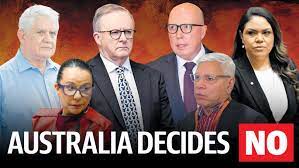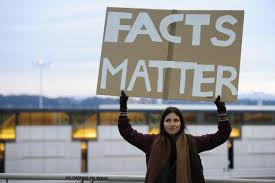Referendum 2023 – Indigenous Voice to Parliament and Government
The referendum on the Voice to Parliament is only days away, yet I remain unsure of how I should vote. In contrast, unless I’m deluded by nostalgia, the referenda of the 70s, 80s, 90s made how to vote seem obvious.
THE QUESTION IN THIS REFERENDUM
 In the looming referendum we are asked to approve the addition of a chapter 9 to the constitution’. For this to happen, the proposal would need to be approved by a majority of voters in a majority of the states and by a majority nationally.
In the looming referendum we are asked to approve the addition of a chapter 9 to the constitution’. For this to happen, the proposal would need to be approved by a majority of voters in a majority of the states and by a majority nationally.
The title of the proposed new chapter is ‘Recognition of Aboriginal and Torres Strait Islander Peoples.’
The proposed chapter consists of only one section – section 129, which states:
In recognition of Aboriginal and Torres Strait Islander peoples as the First Peoples of Australia:
(i) there shall be a body, to be called the Aboriginal and Torres Strait Islander Voice;
(ii) the Aboriginal and Torres Strait Islander Voice may make representations to the Parliament and the Executive Government of the Commonwealth on matters relating to Aboriginal and Torres Strait Islander peoples;
(iii) the Parliament shall, subject to this constitution, have power to make laws, with respect to matters relating to the Aboriginal and Torres Strait Islander Voice, including its composition, functions, powers and procedures.
THIS POST
In post I consider what it is that we’re being asked to approve and the reasons why we may choose to vote Yes or No. I am also hoping that this exercise will help me decide how I vote.
VOTING ON CONSTITUTIONAL RECOGNITION
 First, and in my view most significantly, we are asked to approve the inclusion of a statement recognising the Aboriginal and Torres Strait Islander people as the first inhabitants of this country.
First, and in my view most significantly, we are asked to approve the inclusion of a statement recognising the Aboriginal and Torres Strait Islander people as the first inhabitants of this country.
If the Yes vote attains the majorities required, the constitution would at long last recognise Aboriginal and Torres Strait Islander peoples as the First Peoples of Australia.
While such Constitutional recognition is long overdue, its significance would be largely symbolic as this fact is almost universally recognised, legally and otherwise.
It is anshame that this recognition is not the subject of a separate referendum question – one that is not tied to the Voice. I’ve no doubt that on its own a question relating to recognition would receive overwhelming support.
Tied to the Voice proposal, it is likely at best to secure a bare majority. In so doing, even a Yes victory would (unfairly, in my view) portray us as a nation split on the recognition of Aboriginal and Torres Strait Islander people as the First People of Australia. Worse still, if the referendum question is defeated, the perception of racism will far exceed the reality.
It is also a shame that this recognition of First Nation is not proposed to appear at the front of the constitution, perhaps even in the preamble, rather than in the constitution’s proposed new last section.
VOTING ON THE VOICE TO PARLIAMENT
The proposed provision, ‘There shall be a body to be called the Aboriginal and Torres Strait Islander Voice’, would make the existence of such a body, mandatory and permanent – at least until amended or repealed in a later referendum.
All that the proposed new section tells us about the Voice is that it ‘may make representations to the Parliament and the Executive Government of the Commonwealth on matters relating to Aboriginal and Torres Strait Islander peoples.’
This means that the proposed body called the Voice could, if it wanted to, make submissions to or lobby not only Parliament but also the Government on any matters concerning Aboriginal and Torres Strait Islander peoples. Whether this would be interpreted to encompass matters that only affect or especially affect Aboriginal and Torres Strait Islander peoples would no doubt be open to legal interpretation and judicial rulings.
Similarly, the manner and extent to which the Government or Parliament would be required to invite, facilitate or even take any notice of such representations by the Voice is equally unclear. The proposed constitutional amendment would not in itself require the Government or Parliament to consult the Voice or to even respond to its representations.
Such detail would appear in subsequent laws enacted and consequently be able to be amended or revoked by Parliament at a later time.
VOTING ON POWER GIVEN TO PARLIAMENT
The proposed constitutional amendment expressly empowers Parliament ‘to make laws with respect to matters relating to the Aboriginal and Torres Strait Islander Voice including its composition, functions, powers and procedures.’
That this broad power, to make laws relating to the Voice is expressly stated to be subject to the Constitution means, for example, that Parliament could not give the Voice law making or judicial powers.
The kind of laws with respect to matters relating to the Voice that are envisaged would, the proposed section states, ‘include the composition, functions, powers and procedures of the Voice.k
A consideration of the potential laws regarding the composition of the Voice that would be within the power of the Parliament illustrates the almost infinite forms of the Voice body.
Parliament would be given the power to pass laws for example on which and how many people would make up this body, whether they would be appointed or elected and by whom. Such matters would be at the discretion of the government, irrespective of the views of Australia’s First Nations peoples.
While much has been said about all First Nations communities being represented, in theory it would be equally constitutional for Parliament to set up a Voice consisting of two or three white people unrepresentative of any First Nations peoples.
Responding to criticism of the vagueness of the proposal, proponents of a Yes vote tell us that Constitutions are not meant to contain the detail that implementing legislation will provide. However, constitutions generally define the extent and purposes of the exercise of power, something that appears not to be the case in this instance.
Those reassured by the Albanese government’s plans for implementation, also need to remind themselves that Parliament’s power to make laws, includes the power to amend or revoke such laws.
MOST FIRST NATIONS PEOPLES ARE SAID TO SUPPORT THE YES VOTE
It would appear that most Aboriginal and Torres Strait Islander peopleS support the Yes vote. However, as the Voice is joined to the issue of recognition, I would question the drawing of inferences as to Indigenous Australian’s support for the vaguely defined Voice to Parliament and Government.
Many governments have endeavoured to address problems that are particularly prevalent in Indigenous communities. They have done so through consultation, facilitating self governance and increasing funding. Nearly all such endeavours have failed. What has also emerged is that different communities have differing views as to what needs to be done.
WHOSE VOICES?
It would be for Parliament to decide how the Voice would represent differing voices. In any event there would be no constitutional requirement that the Voice represents all Aboriginal and Torres Strait Islander peoples. I wonder whether Parliament has greater skills and resources to ascertain the views of Indigenous Australians.
While the debate of the referendum question tends to refer to Aboriginal and Torres Strait Islander peoples who live in remote or regional areas, according to the Australian Bureau of Statistics almost one-third of Aboriginal and Torres Strait Islander peoples live in Australia’s capital cities. This raises two issues for me.
First, can the diverse views and concerns of Indigenous people living in, for example, Sydney really be identified and represented by the Voice.
Secondly, and perhaps, more importantly, is it patronising and inappropriate to imagine that Indigenous people of diverse cultures, life experiences, levels of education, socio-economic status will have similar views on matters pertaining to some or all of them.
My concern is that Voice leaders will use the body as a vehicle for promoting and enacting their own ideas and agendas (no matter how well intentioned).
TACKLING ISSUES OF DISADVANTAGE OR THE DISADVANTAGE OF BEING INDIGENOUS?
It has been suggested that rather than tackling Indigenous disadvantage, it is specific issues such as domestic violence, provision of services, racism, discrimination, substance abuse, crime, that should be addressed in all sections of the Australian population including Indigenous communities.
While the failure of this referendum would not necessarily lead to a change in the current approach to addressing disadvantage in Indigenous communities, it would send a strong message that Australian do not see the answer to be found in a constitutionally entrenched minor departure from current failed policies.
So, how do we improve many Indigenous people’s poor quality of life? Through laws and policies put to parliament or government by the Voice, or by measures focusedmon repeatedly identified specific issues affecting Australians, and in particular, Indigenous people?
Even if we retain the current focus on Indigenous people being disadvantaged because they are Indigenous, it is unclear how the setting up of the Voice will be more successful than efforts to date. Parliament is already constitutionally empowered to pass laws specifically for Aboriginal and Torres Strait Islander Australians. There is also nothing to prevent them from setting up a Voice like body or otherwise seeking the views of First Nations people.
IS ADDITIONAL POWER REQUIRED?
Unlike other referenda, with respect to the setting up of the Voice, we are asked to give constitutional power to a Government that already has the requisite power.
THE NEED FOR CONSTITUTIONAL CHANGE
Consequently, while the Uluṟu Statement includes an Indigenous Voice to Parliament in its reform agenda, the setting up of the Voice does not require the Constitution to be amended.
The recognition of Aboriginal and Torres Strait Islander peoples as Australia’s First Peoples would constitutionally acknowledge the position and place of Aboriginal and Torres Strait Islander peoples, correcting permanently, a historical omission and wrong. For that reason it requires a Constitutional amendment approved by all Australians, and not just Parliament.
THE DECISIVE FACTOR
For me, the decisive factor in how I vote is turning out to be my conclusion on whether the best way forward in seeking to address the disadvantaged position of many Aboriginal and Torres Strat Islander peoples is:
a) the Voice, a formalised input to Parliament and Government from Aboriginal and Torres Strait Islander peoples on issues relating to Aboriginal and Torres Strat Islander peoples, as translated in representations to Government and Parliament by the Voice, or
b) A new approach that does not rely on race specific laws entrenched in the Constitution, or at least one that does not entrench indefinitely current failed policies.
THE ULURU STATEMENT
It is true that the Uluru Statement calls for “the establishment of a First Nations Voice enshrined in the Constitution”. However, I would suggest that this referendum concerns much more than the implementation of the Uluru Statement’s reform agenda. The outcome of this referendum is increasingly seen as the whole nation’s verdict on how the disadvantaged position of many Indigenous people is to be tackled.
MY CONCLUSION
I feel uncomfortable (if not embarrassed) at the prospect of not voting for the constitutional recognition of Aboriginal and Torres Strait Islander peoples as Australia’s First Peoples. However, I simply cannot vote Yes, if by doing so I would also be constitutionally entrenching the status of Australia’s Indigenous peoples as peoples whose needs are determined by their race and who will indefinitely continue to require such Government assistance as is determined and conveyed to Parliament by a body called the Voice.


